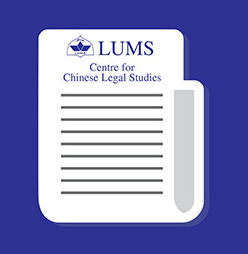Authors: Ayesha Alam Malik and Khadijah Ahmad
At the time of writing, there have been over 16.4 million confirmed cases of Covid-19 worldwide and the outbreak has caused approximately 650,000 deaths. Despite the fact that infections continue to rise, many countries are now relaxing restrictions and attempting to return to a much touted ‘new normal’ in the hope of regaining some semblance of order. While the debate continues as to whether authoritarian, ‘secretive’ countries have been able to handle the pandemic better than democratic, ‘transparent’ ones, the question remains as to whether human rights have been significantly curtailed in the rush to curb the outbreak’s spread. Given a second wave could be on the horizon and lockdown measures may be re-imposed, it is necessary to analyse these actions in line with obligations under International Human Rights Law (IHRL).
Pakistan has, similar to most countries, adopted measures which limit individual freedoms—a lockdown was imposed, cases were forcibly quarantined, schools and businesses were closed, masks were made mandatory, travellers’ locations were tracked through cyber surveillance, and restrictions were imposed on public gatherings. I.A. Rehman of the Human Rights Commission of Pakistan (HRCP) stated that the pandemic “is likely to cast a long shadow on prospects for human rights.” There are worries that the outbreak will be abused by states which seek to pass bills granting emergency executive powers of indefinite scope and duration. While IHRL proves flexible in times of emergency due to its allowance of limitations and derogations, it also requires that these be used so as to not disproportionately undermine human rights.
The International Covenant on Civil and Political Rights (ICCPR) dictates that certain rights may be limited for legitimate aims which include national security, public safety and health. These limitations, in accordance with the Siracusa Principles, must be by law, necessary and proportionate to such aims, and not arbitrary or discriminatory. The rights which can be limited for reasons of public health include the freedom of movement, freedom to manifest one’s religion or belief, freedom of expression, and freedom of assembly and association. As social contact increases the disease's spread, reasonable measures imposed by the Government of Pakistan (GOP) to minimise such contact would be deemed justifiable. The policy of 'smart lockdowns' is an attempt to avoid indefinite and overbroad restrictions. While attempting to maintain a balance between lives and livelihoods, areas identified as COVID-19 hotspots have been sealed in lieu of a country-wide shut-down. Social protection programs, such as the Ehsaas Emergency Cash Program, have been initiated to protect the vulnerable during the crisis. Hence, the restrictions imposed are limited, time-bound, and in line with the principles of IHRL.
Unlike the ICCPR, the International Covenant on Economic Social and Cultural Rights (ICESCR) does not have a derogation clause. It does, however, include a limitations clause in Article 4 under which states can restrict rights so long as the restrictions are “compatible with the nature of these rights and solely for the purpose of promoting the general welfare in a democratic society.” The key right in question under this treaty is listed under Article 12—the right to the enjoyment of the highest attainable standard of physical and mental health. The ICESCR regime further imposes a number of 'core obligations' which cannot be limited, including the provision of the right to access health facilities, goods and services, and an equitable distribution of the same.
The GOP has, despite its efforts, struggled to fulfil these obligations. A lack of essential supplies has negatively impacted containment efforts, and has increased the risk of infection, especially, for health workers. This, in turn, has translated into a lack of care-giving personnel for COVID-19 patients, and over-burdened critical-care hospitals. Accordingly, the HRCP has stressed upon the need to make available adequate Personal Protective Equipment (PPE) to frontline health workers at all levels. The Commission has also advocated for mobilizing district hospitals which are currently non-functional. Recognizing the world-wide PPE shortage, the WHO has issued guidance on facilitating optimal usage of the equipment which Pakistan can benefit from.
The government must view its pandemic response through a human rights prism to allow a recalibration of efforts to achieve optimal results. Questions of who has been impacted the most and what can be done about it should be answered. Grievances of citizens should be addressed through the establishment of remote courts. Equally pressing, is the need to draw long-term lessons on improving emergency response preparedness so that the same mistakes are not repeated, and human health and dignity are preserved at all costs.
The authors are Research Associates at the Centre for Chinese Legal Studies (CCLS), SAHSOL, LUMS. This research was conducted by the CCLS and was supported by the Hanns Seidel Foundation (HSF) Pakistan. The opinions expressed in this article are those of the authors and do not reflect the official position of LUMS or HSF.
This article was originally published in The Nation on the 31st of July, 2020 and can be accessed here.

